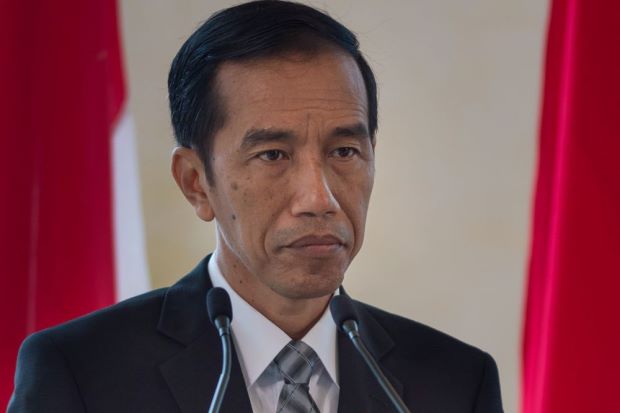President Joko Widodo has signed a government regulation (PP) giving teeth to a controversial law on punishing convicted child molesters with chemical castration.
The PP was signed on Dec. 7 but a copy of the document only circulated widely yesterday. Titled PP No. 70/2020 on chemical castration, attachment of electronic tracking devices, rehabilitation, and disclosure of the identities of culprits of sexual violence against children, the regulation most notably mandates the enforcement of heavy punishment on child sex offenders.
In 2016, President Joko Widodo signed a Perppu (Presidential Regulation In Lieu of Law) introducing the death penalty and chemical castration for convicted child molesters, which was ratified into law that same year by the House of Representatives (DPR). Since then, two people have been sentenced to chemical castration, but their punishments have been delayed as the Indonesian Doctors Association (IDI) have refused to be the designated executioner on the grounds that the procedure violates medical ethics.
Related — Indonesian man convicted of raping 9 children becomes first to be sentenced with chemical castration
The new PP goes into specific, previously undefined detail about the enforcement of the punishments. For example, a convicted child molester can only be chemically castrated for a period of up to two years per offense, while the attachment of an electronic tracking device, which is not necessarily mutually exclusive to chemical castration, is also valid for up to two years.
However, the PP did not go beyond “medical experts” to specify which party would carry out the chemical castration on child molesters. An IDI representative said yesterday that the association has yet to receive instructions on the matter from the government.
Right groups have criticized recent developments, with the National Commission on Human Rights (Komnas HAM) calling the punishment a step back towards the ancient ages for Indonesia’s legal system. Meanwhile, the National Commission on Violence Against Women (Komnas Perempuan) reiterated that temporarily taking away child molesters’ sexual desires will not solve the problem in the long run.
“The government will not reach its target with castration, because sexual violence against children happens due to imbalanced power relations (between culprit and victim) or the culprits’ perception toward victims,” Komnas Perempuan Commissioner Siti Aminah Tardi said.
“Controlling [culprits’] sexual hormones will not end sexual violence.”
Siti argued that prevention, such as through sexual education, and the passing of laws that better protect victims and punish offenders would be more effective in reducing sexual violence, against children or otherwise, in Indonesia.




